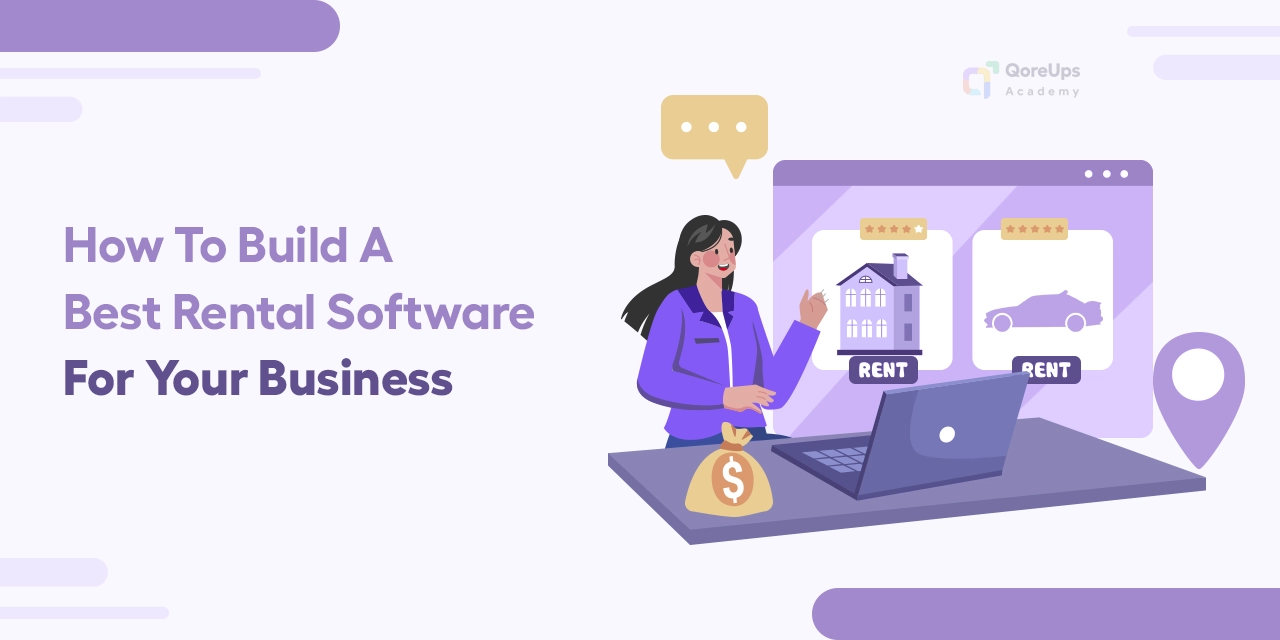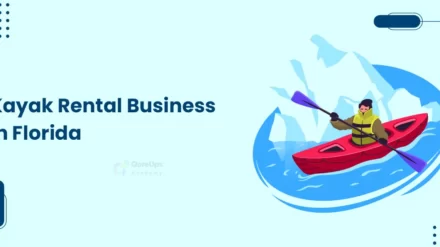In today’s digital age, rental businesses are increasingly turning to rental software to streamline operations, enhance customer experiences, and boost efficiency.
Whether you’re in equipment rentals, event management, car rentals, or any other rental service, having the right rental software can make a significant difference.
This guide explores what rental software entails, its types, the costs involved, and essential steps to build the best rental software for your business.
What is Rental Software?
Rental software refers to specialized tools designed to manage various aspects of rental businesses.
It typically includes features for inventory management, booking and reservations, customer management, and payment processing, and often integrates with other business functions like accounting and marketing.
The primary goal of rental software is to automate and streamline processes, allowing rental businesses to operate more efficiently and effectively.
7 Types of Rentals Popular In USA 2025
Rental businesses span across diverse industries, each with specific needs and requirements.
Let’s see some common types of rentals that benefit from specialized rental software solutions.
Vacation Rentals
Vacation rentals refer to the short-term rental of homes, apartments, condos, or vacation properties to travelers.
These accommodations offer an alternative to traditional hotels, providing more space, privacy, and often unique or local experiences.
Market Trends:
- Rising Popularity: Vacation rentals have surged in popularity due to their appeal to travelers seeking personalized experiences and accommodations that feel like home.
- Diverse Offerings: Platforms like Airbnb, Vrbo, and Booking.com have expanded the range of vacation rental options, including beach houses, urban apartments, countryside cottages, and unique stays like treehouses or cabins.
- Regional Variations: Coastal destinations, mountain getaways, and urban centers with cultural attractions are particularly popular for vacation rentals.
Residential Rentals
Residential rentals involve the long-term leasing of apartments, condos, townhouses, or single-family homes for residential purposes.
These rentals typically involve leases of one year or more.
Market Trends:
- Demand Growth: Increasing demand for rental housing driven by demographic shifts, lifestyle preferences, and economic factors favoring renting over homeownership.
- Urbanization: Urban areas attract renters seeking proximity to employment, amenities, and cultural attractions, driving rental market growth in cities.
- Rental Yield: Residential rentals offer steady rental income and potential appreciation, attracting investors in real estate markets.
Car Rentals
Car rentals involve the short-term rental of vehicles ranging from standard cars and SUVs to trucks and luxury vehicles for personal or business use.
Market Trends:
- Shared Mobility: The increasing popularity of car-sharing and ride-hailing services impacting traditional car rental models, with some rental companies diversifying into these sectors.
- Tech Integration: Integration of technology for seamless booking, keyless entry, and mobile app functionalities enhancing customer convenience.
- Environmental Awareness: Growing demand for electric and fuel-efficient rental vehicles in response to environmental concerns and regulatory changes.
Equipment Rentals
Equipment rentals involve the short-term rental of tools, machinery, and equipment for construction, home improvement, landscaping, and industrial projects.
Market Trends:
- Industry Growth: Expansion driven by construction activity, infrastructure projects, and increasing DIY trends among homeowners.
- Specialization: Rental companies offering specialized equipment for niche markets like renewable energy, telecommunications, and event management.
- Digital Transformation: Adoption of online platforms for equipment rental reservations, tracking, and management enhancing customer experience and operational efficiency.
Event Rentals
Event rentals involve the rental of items such as tents, tables, chairs, linens, decor, and audio-visual equipment for weddings, parties, corporate events, and conferences.
Market Trends:
- Event Diversity: Increasing diversity in event types and sizes driving demand for customizable rental solutions.
- Sustainability: Growing preference for eco-friendly event rentals, including biodegradable materials, energy-efficient lighting, and reusable decor items.
- Integration with Technology: Use of digital tools for event planning, virtual tours, and interactive displays enhancing event rental services.
Luxury and Exotic Car Rentals
Luxury and exotic car rentals involve the rental of high-end vehicles such as sports cars, convertibles, and luxury SUVs for special occasions, leisure travel, or business use.
Market Trends:
- Experiential Travel: Rising demand for luxury travel experiences, including luxury vehicle rentals for memorable trips and celebrations.
- Corporate Events: Luxury car rentals for corporate events, client entertainment, and executive transportation.
- Destination Weddings: Popular choice for destination weddings and milestone celebrations, offering style, comfort, and prestige.
RV and Camper Rentals
RV and camper rentals involve the rental of motorhomes, campervans, trailers, and recreational vehicles for road trips, camping adventures, and outdoor exploration.
Market Trends:
- Adventure Travel: Increasing popularity of outdoor and adventure travel, driving demand for RV and camper rentals among travelers seeking flexibility and scenic experiences.
- Family Vacations: Preferred choice for family vacations, offering spacious accommodations, kitchen facilities, and mobility to explore multiple destinations.
- Digital Nomads: Appeal to digital nomads and remote workers seeking flexible living arrangements and travel opportunities.
These rental types cater to diverse needs across travel, housing, events, and leisure activities, reflecting ongoing trends and preferences in the rental market in the USA as of 2025.

How Much Does Rental Software Cost?
The cost of rental software varies depending on several factors, including the type of rental business, size of operations, desired features, and deployment model.
Let’s be aware of the factors determining the cost now.
Subscription Model
Many rental software providers offer subscription-based pricing, typically ranging from $50 to $500 or more per month.
The cost increases with the number of users, rental items managed, and included features such as integrations and support.
Customization
Custom-built rental software solutions or those requiring extensive customization may incur higher upfront costs.
Customization describes a process where the business professionals change the software as per the workflows, requirements for the brand, and unique features.
Additional Fees
Beyond subscription fees, rental software costs may include setup fees, training costs, transaction fees (e.g., for payment processing), and ongoing support charges.
Businesses should factor in these additional expenses when budgeting for rental software implementation.
Total Cost of Ownership (TCO)
Consider the long-term expenses associated with rental software, including upgrades, maintenance, and scalability costs.
Calculating the TCO helps businesses evaluate the financial viability and return on investment (ROI) of adopting rental software.
The rental software cost will vary depending on the factors we discussed. Let’s see how we can successfully build the best rental software that too cost-effective.
How To Build The Best Rental Software
Building the best rental software involves several key steps to ensure it meets your business’s unique needs and delivers maximum value to users:
Identify Your Requirements
Begin by conducting a thorough assessment of your rental business’s requirements and challenges.
Engage with key stakeholders, including management, staff, and customers, to identify pain points and opportunities for improvement.
Outline specific goals for implementing rental software, such as increasing operational efficiency, improving customer satisfaction, or expanding market reach.
Choose the Right Platform
Decide on the appropriate development platform for your rental software. Options include:
Custom Development: Scratch-based rental software development is easy to achieve maximum flexibility and customization. But, the time, resources, and technical expertise are the needed things.
SaaS (Software as a Service): SaaS rental software solutions offer scalability, regular updates, and lower upfront costs compared to custom development. SaaS platforms typically charge a monthly or annual subscription fee based on usage and included features. They are suitable for businesses seeking rapid deployment, standardized features, and minimal IT infrastructure investment.
Open-Source Platforms: Open-source rental software solutions provide source code access for customization and community support. They offer cost-effective options for businesses with technical capabilities or specific customization requirements.
Define Feature Set For Your Rental Software
- Inventory Management: Track and manage rental inventory, including availability, location, condition, and maintenance schedules.
- Booking and Reservations: Enable customers to book rental items online or through mobile apps, with real-time availability updates and automated confirmation notifications.
- Customer Relationship Management (CRM): Maintain detailed customer profiles, communication history, and preferences to personalize interactions and improve customer service.
- Payment Processing: Securely process payments, deposits, and refunds through integrated payment gateways, supporting multiple currencies and payment methods.
- Analytics: Before planning and decision-making, the generation of custom reports related to rental activities, inventory, and trends is essential.
- Mobile Compatibility: Ensure compatibility with mobile devices to facilitate on-the-go access for staff and customers, supporting mobile reservations, check-ins, and inventory management.
- User Interface (UI) and Experience (UX): Design an intuitive and user-friendly interface that enhances usability for both administrators and customers. Consider ergonomic design principles, intuitive navigation, and accessibility features to optimize user engagement and satisfaction.
Improve Security
Prioritize robust security measures to protect sensitive data, including customer information, payment details, and business operations.
Implement encryption, secure authentication protocols, regular security audits, and compliance with data protection regulations (e.g., GDPR, CCPA) to safeguard against cyber threats and data breaches.
Testing and Feedback
Conduct thorough testing throughout the development lifecycle to identify and resolve software bugs, usability issues, and performance bottlenecks.
Solicit feedback from beta testers, pilot users, and stakeholders to gather insights for refining and improving the rental software before launch.
Launch and Support
Prepare for the software launch with comprehensive training programs for staff and customers.
Provide ongoing technical support, troubleshooting assistance, and regular software updates to maintain optimal performance and user satisfaction.
Establish communication channels, such as help desks, FAQs, and online forums, to address user inquiries promptly and effectively.

7 Benefits of Rental Software in 2025
Rental software offers numerous advantages to businesses in 2025, enabling them to operate more efficiently, enhance customer satisfaction, and achieve sustainable growth.
Operational Efficiency
Automate routine tasks such as inventory management, booking processes, and payment transactions, reducing manual errors and operational costs.
Customer Satisfaction
Provide a seamless rental experience with easy online booking, transparent pricing, and personalized customer service.
Enhance communication through automated notifications, reminders, and feedback mechanisms to maintain high levels of customer satisfaction and loyalty.
Analytics and Insights
Gain actionable insights into rental trends, customer behavior, and business performance through advanced reporting and analytics tools.
These provide the chances to grow your revenue, and optimize inventory via data-based decisions.
Scalability and Flexibility
Scale operations seamlessly with expanding rental inventory, new service offerings, or additional business locations.
Adapt the rental software builder to evolving market trends, regulatory requirements, and customer expectations to maintain competitiveness and market leadership.
Integration Capabilities
Integrate rental software with existing business systems, such as accounting software, CRM platforms, and e-commerce solutions, to streamline data flow and operational workflows.
Ensure data consistency, eliminate redundant processes, and improve cross-functional collaboration across departments.
Compliance and Security
Ensure compliance with industry regulations and data protection standards (e.g., PCI DSS, HIPAA) to protect sensitive customer information and maintain trust.
Implement robust security measures, such as encryption, access controls, and secure authentication protocols, to safeguard against cyber threats and unauthorized access.
Cost Efficiency
Optimize resource allocation, minimize overhead costs, and maximize return on investment (ROI) with cost-effective rental software solutions.
Evaluate total cost of ownership (TCO), including upfront expenses, ongoing maintenance, and scalability costs, to achieve long-term financial sustainability and profitability.
These are the 7 benefits of rental software for your business. Thus get the best rental software to boost your business.

Conclusion
Investing in the best rental software tailored to your business needs can revolutionize how you manage rentals, improve customer satisfaction, and drive profitability.
Whether you choose to build custom software or opt for a SaaS solution, prioritize scalability, security, and user experience to stay competitive in the dynamic rental market of 2025.
Identifying specific requirements, selecting the right development platform, and implementing essential features are crucial steps.
They enable your rental business to harness rental software’s full potential, achieving operational excellence and sustainable growth.






